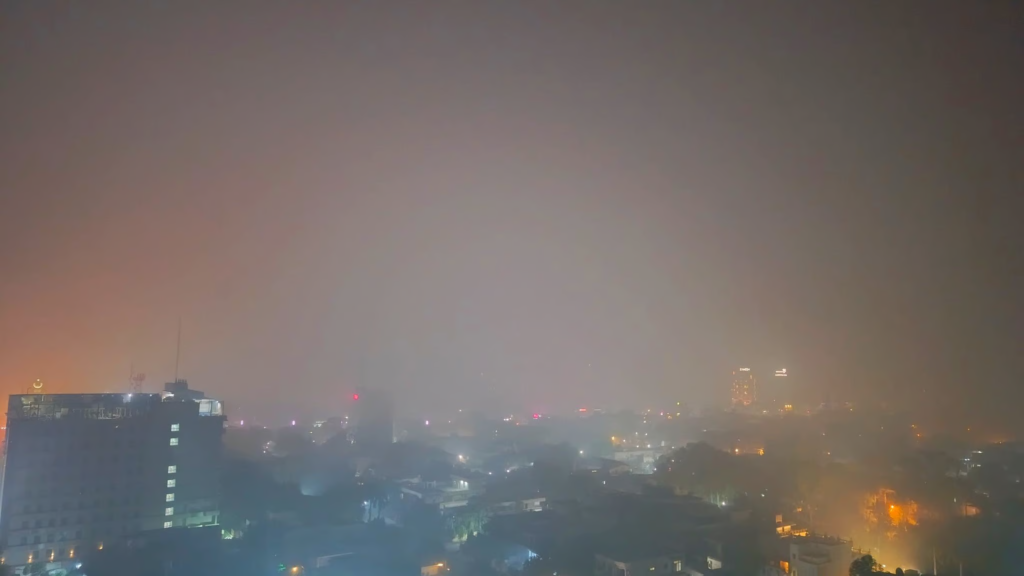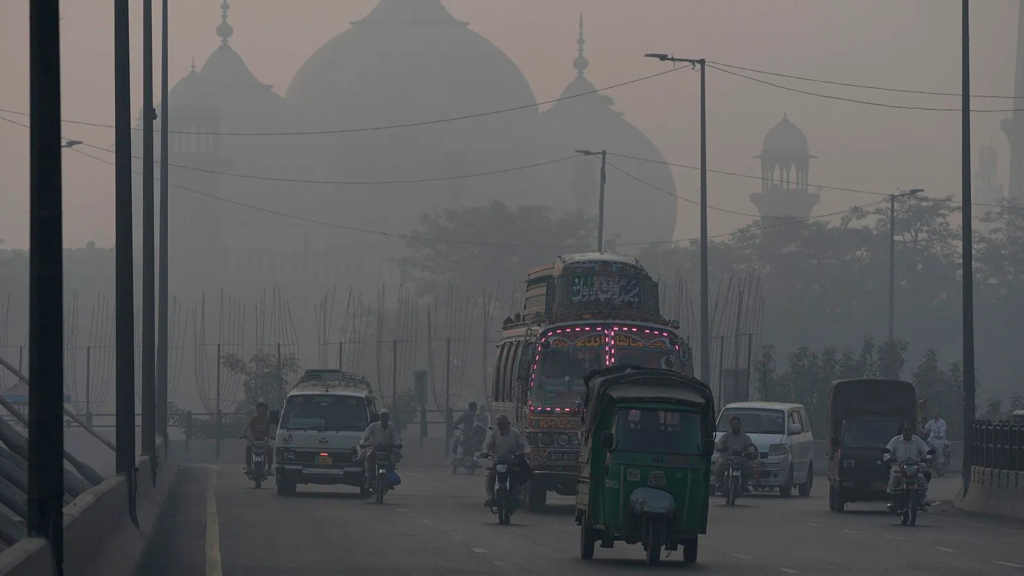Air pollution in Pakistan has reached unprecedented levels, with cities across Punjab, especially Multan and Lahore, engulfed in a hazardous smog that poses severe health risks to residents. In response, the Punjab government has ordered the closure of schools, parks, and tuition centers, emphasizing the severity of the crisis.
As Multan records an astonishing AQI of over 2,000, officials and citizens are grappling with the urgent need for solutions to the ever-worsening air quality that has turned daily life into a health hazard.
The Unprecedented Rise in Multan’s AQI and Its Health Implications
The city of Multan, located in southern Punjab, made headlines this week as its AQI soared to a staggering 2,135 between 8 and 9 a.m. on Friday. This extreme air quality measurement, reported by IQAir, highlights a critical environmental emergency.
PM2.5, the fine particulate matter most harmful to human health, reached concentrations of 947 micrograms per cubic meter in Multan, which is an alarming 189 times higher than the World Health Organization’s (WHO) recommended guideline.
Multan isn’t alone in facing such alarming figures. Lahore, Gujranwala, Faisalabad, and several other cities in Punjab have also seen AQI levels frequently exceed 300 – the benchmark considered “hazardous” by international health standards.
Read : Pakistan Blames India for Rising Air Pollution in Country as Lahore’s AQI Hits 1900
These high levels of pollution have led to an increase in respiratory illnesses, placing a considerable strain on healthcare facilities. In Multan and Lahore, hospitals are seeing a surge in patients with conditions like asthma, bronchitis, and other respiratory issues.
Read : Air Pollution Killed 135 Million People in Last Four Decades
Health experts are urging residents to wear masks, stay indoors, and avoid outdoor activities to limit exposure to the toxic air, especially given that prolonged inhalation of high PM2.5 levels can have long-term health consequences, including cardiovascular and respiratory diseases.
Punjab’s Response: School and Park Closures Across Affected Districts
To mitigate the health risks of the smog, the Punjab government has implemented strict preventive measures. Schools, tuition centers, and parks in affected districts, including Multan, Lahore, Faisalabad, Sheikhupura, and Gujranwala, will remain closed until at least November 17.
This decision, enforced by the Punjab Education Department, affects both public and private institutions. The government has also restricted outdoor activities in parks, aiming to reduce residents’ exposure to hazardous air levels.

This step, while necessary for public health, disrupts daily routines and underscores the wider societal impact of air pollution. Parents face challenges as children’s education is interrupted, and outdoor recreational spaces remain inaccessible.
The shutdown also reflects the urgency felt by officials who recognize the health dangers posed by continued exposure to such high pollution levels.
Besides immediate interventions, the government has formed panels to identify long-term measures for reducing air pollution in Punjab, including introducing stricter emissions controls, enhancing monitoring systems, and advocating for sustainable practices.
The Broader Impact of Hazardous Air Quality Across Pakistan
The smog crisis extends beyond Multan and Punjab. Other major Pakistani cities, including Islamabad, Rawalpindi, Peshawar, and Karachi, have also reported “hazardous” AQI levels, with widespread health implications for millions of residents.
Lahore has been particularly hard-hit, repeatedly ranking as one of the most polluted cities in the world over recent weeks, with AQI readings frequently crossing 1,000. On Thursday, Lahore’s AQI even reached a peak of 1,165, more than 120 times the safe limit set by WHO standards.

The smog has become a seasonal challenge for Pakistan, linked to factors such as vehicular emissions, industrial pollutants, and agricultural burning. A combination of these factors, along with low wind speeds, has trapped pollutants in the atmosphere, causing smog to settle over urban areas.
Environmentalists and public health experts warn that without significant policy changes, this problem will persist and even worsen, affecting not only current but also future generations.
They advocate for the government to prioritize sustainable development by investing in clean energy, regulating industrial emissions, and promoting eco-friendly transportation options.
As air quality in Multan and other parts of Punjab reaches unprecedented levels, Pakistan faces an urgent public health crisis. The closure of schools, parks, and tuition centers across impacted districts highlights the gravity of the situation, though it also disrupts daily life.
Long-term solutions are essential, with both government and public efforts needed to mitigate pollution and safeguard health in the face of a growing environmental emergency. Without concerted action, the health of millions will continue to be at risk due to unchecked pollution levels.

